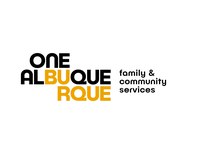City Crosses Major Milestone: 1000th Person Housed out of Family Program
Update June 20, 2023
A program built during the pandemic has become the City of Albuquerque’s most successful pathway to housing for families experiencing homelessness. The Family Housing Navigation Center (formerly known as Wellness-2 Family Shelter) has now permanently housed over 1000 people in 312 families since December 2020—582 of whom are children.
The City contracts with Heading Home to provide on-site case management and family support teams to help families navigate housing and social services. Weekly collaborative case consultations between provider agencies, the City, specialty courts, and the APS Title I McKinney Vento program match families to the housing option that best fits their needs. This level of collaboration between partners, as well as dedicated City-funded housing vouchers, has helped house families more quickly and ensured they have the supports needed to remain housed.
“The success of the Family Housing Navigation Center proves the value of wraparound services and housing case management co-located with overnight beds,” said Carol Pierce. “We look forward to implementing this outstanding model at the Gateway to better connect people to housing.”
“This collaboration between the APS Title I McKinney-Vento Program and the Family Housing Navigation Center establishes connections to community resources and comprehensive support for families in their efforts to establish stability for their children,” said Cristal Wilson, APS program manager.
“The Family Housing Navigation Center has given the City a proven blueprint for what we will do at Gateway,” said Mayor Tim Keller. “Providing comprehensive services and support are key when connecting people to permanent, stable housing.”
Working across systems to build collaboration between government, non-profits, the school district, and even specialty courts is what will house people faster.
The Family Housing Navigation Center serves an average of 65 families at a time, providing a safe place to stay and connection to school and early childhood services for an around 120 children at any given time. Clients typically stay 90 days and work with onsite case managers toward housing and/or employment. The same system will be implemented at Gateway.

